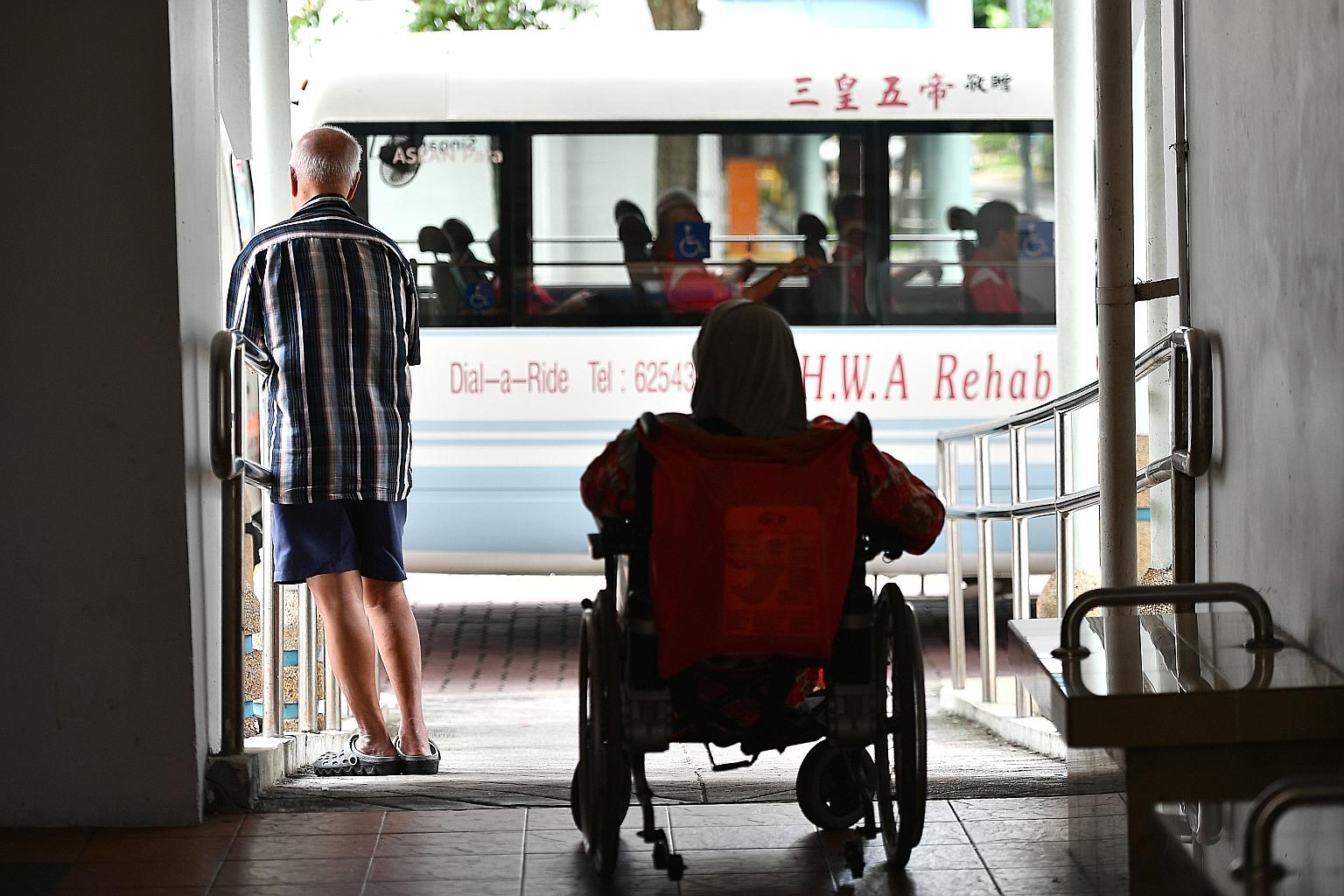Some MPs against higher premiums for women
Sign up now: Get ST's newsletters delivered to your inbox

The Ministry of Health had said previously that CareShield Life premiums are derived actuarially, since women live longer and are expected to suffer from disabilities for longer. But some MPs have called for "better inclusiveness and fairness", and for such gender differentiation to be removed.
ST PHOTO: LIM YAOHUI
A dozen MPs out of the 19 who spoke on the proposed CareShield Life long-term care insurance opposed the fact that women would pay higher premiums than men.
The Ministry of Health (MOH) had explained previously that the premiums are derived actuarially, since women live longer and are expected to suffer from disabilities for longer.
Dr Chia Shi-Lu, head of the Government Parliamentary Committee (GPC) for Health, led the charge, saying the GPC recognises the basis for higher premiums, "but would like to repeat our call that the gender differentiation be removed".
Non-Constituency MP Daniel Goh of the Workers' Party (WP) said he found it "objectionable that women are being penalised for something that is not within their control".
WP MP Pritam Singh (Aljunied GRC) said he strongly supported gender neutrality. "It will mean that men will pay more and women less. Let it be so."
Mr Zainal Sapari (Pasir Ris-Punggol GRC) said his wife lamented that the scheme, touted as being inclusive, "is selective inclusivity".
Mr Saktiandi Supaat (Bishan-Toa Payoh GRC) said he was sure all men in the Chamber, and in Singapore, would not object to more support for women.
Among the women MPs, Dr Lily Neo (Jalan Besar GRC) said: "While I can understand that women live longer, I feel that there can be better inclusiveness and fairness."
Allowing the disabled to join the compulsory scheme for those born in or after 1980 and to receive payouts immediately "reflects the inclusive society that we aspire to build".
"But I am saddened that this idea of inclusive society does not extend to gender equality," she said.
Nominated MP K. Thanaletchimi said there is already a "gender wage gap of 19 per cent to 40 per cent in some industries".
She asked: "Could the Government look into either reducing the difference in premiums or provide greater financial support so that women are not doubly penalised?"
Ms Jessica Tan (East Coast GRC) said given that the scheme is compulsory, it is only right that premiums should disregard gender.
Senior Minister of State for Health Amy Khor, in reply, said it was a difficult decision for both the review committee and her colleagues in the ministry to make.
But the decision is actuarially sound because women's life expectancy is 85.2 years, and men's 80.7 years. Disability is more likely to take place in the older years.
Two local studies also showed that, at age 60, women can expect 7.8 years needing some assistance, compared to 2.6 years for men.
In the United States, two-thirds of long-term insurance claims were paid to women in 2012.
Dr Khor pointed out that under the current ElderShield insurance, women are already paying higher premiums.
She added that should the premiums be the same for men and women, it might lead to "adverse selection" among the two million people who were born before 1980 for whom the scheme is optional.
Men who realise they need to pay more than actuarially called for may not join CareShield Life.
She added: "We note the issue about women having less savings in Medisave. We think that it is prudent to determine the premiums correctly, and then look at different ways to help the women."
Salma Khalik


